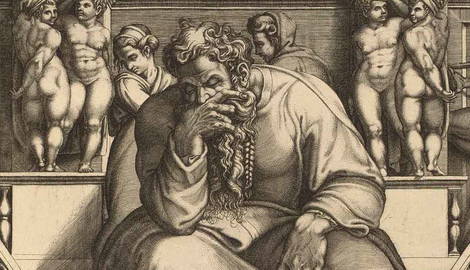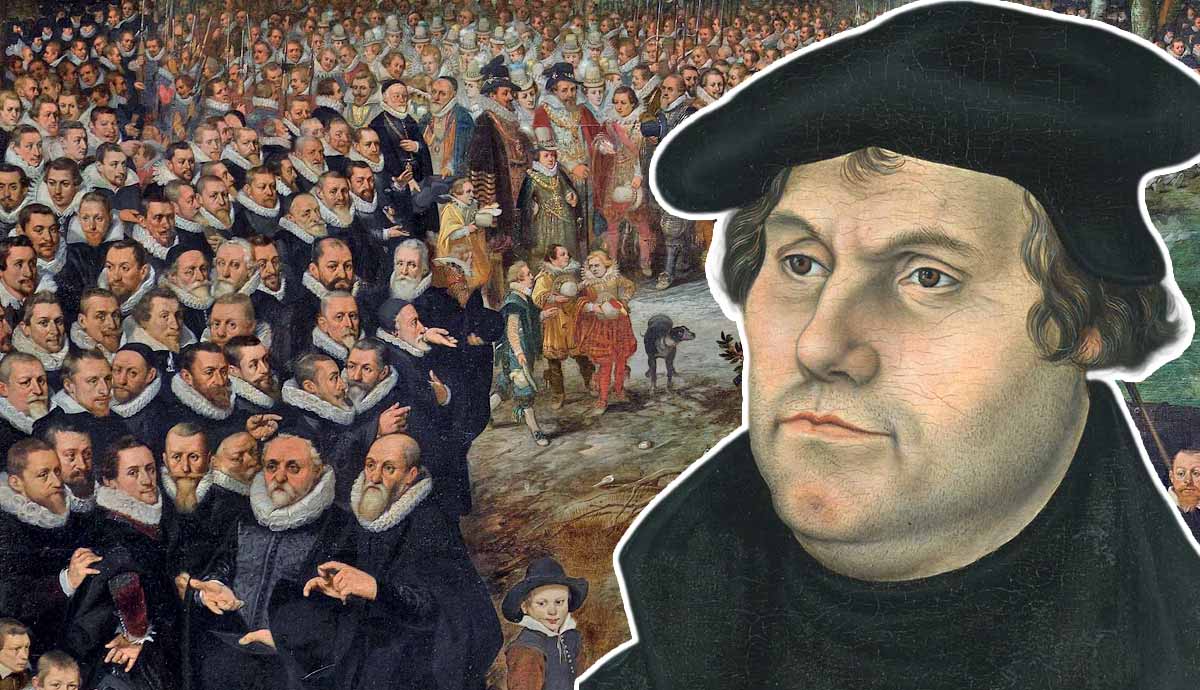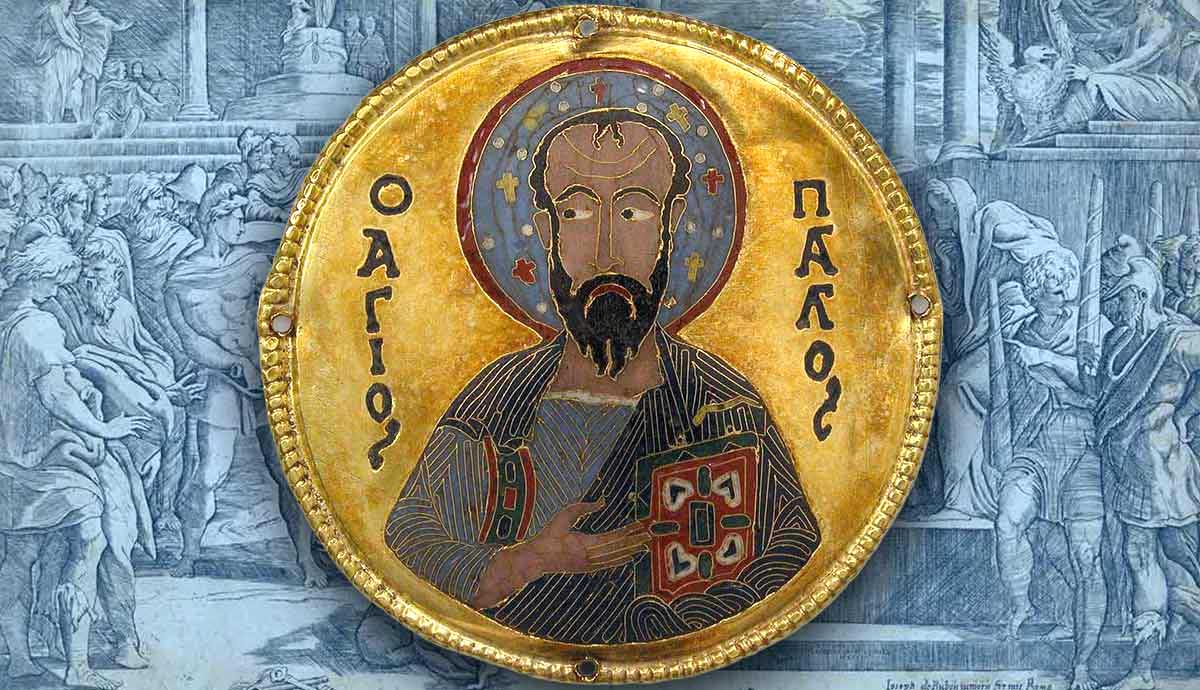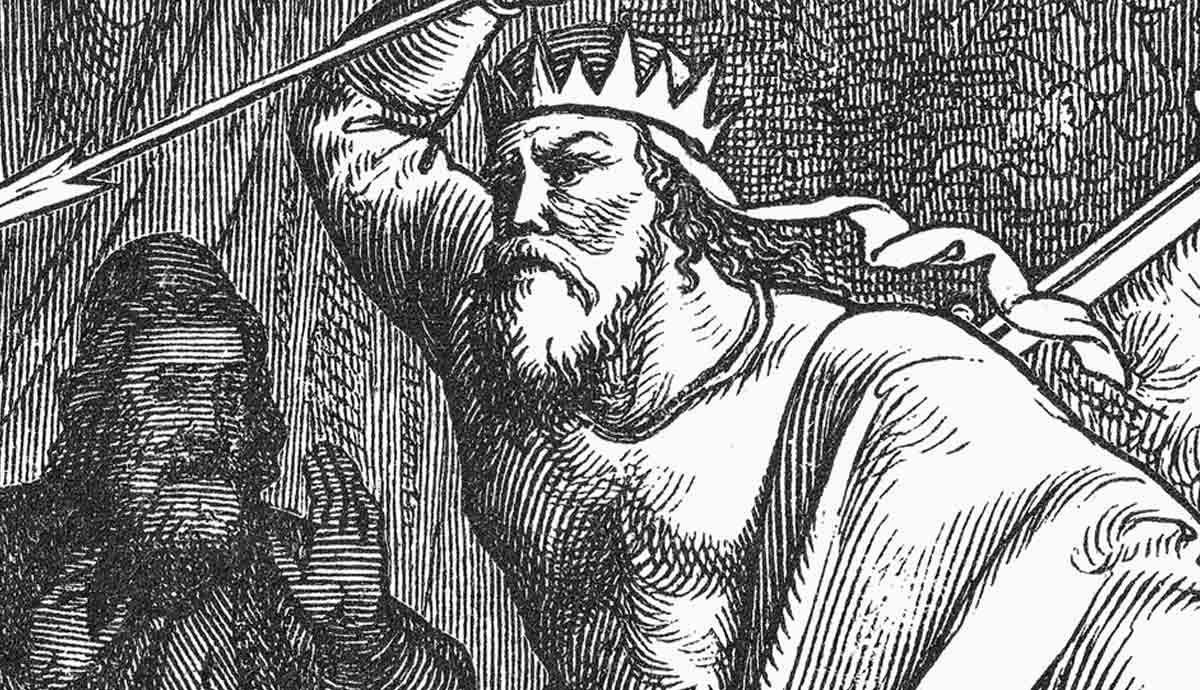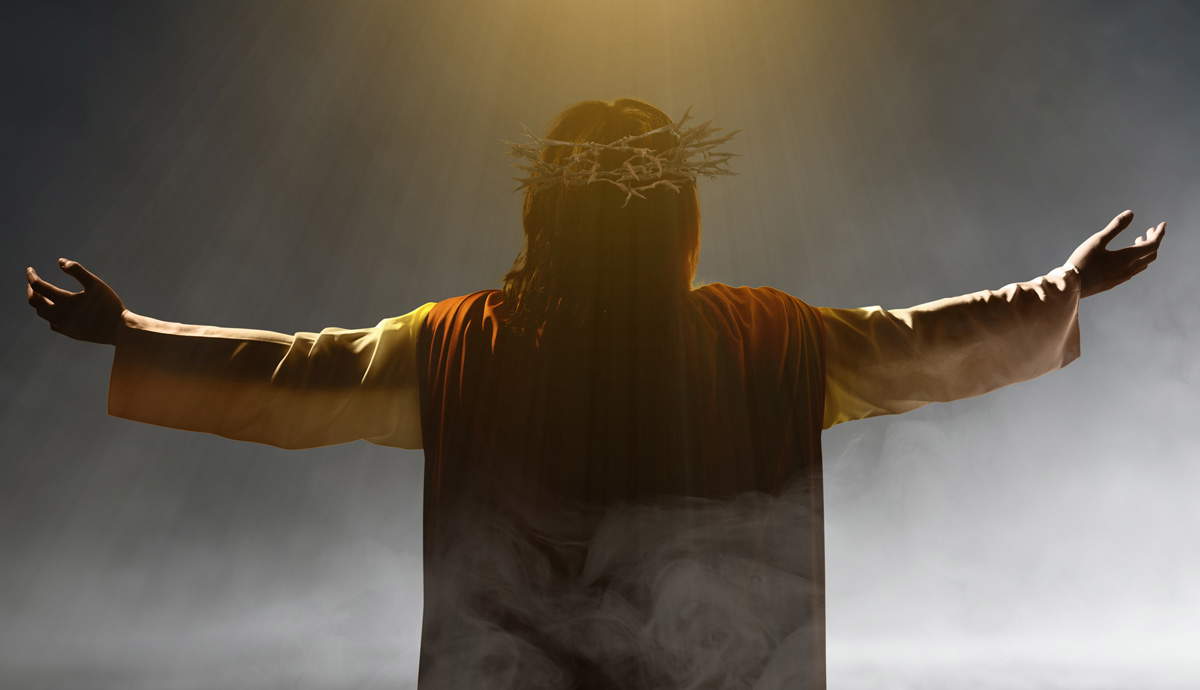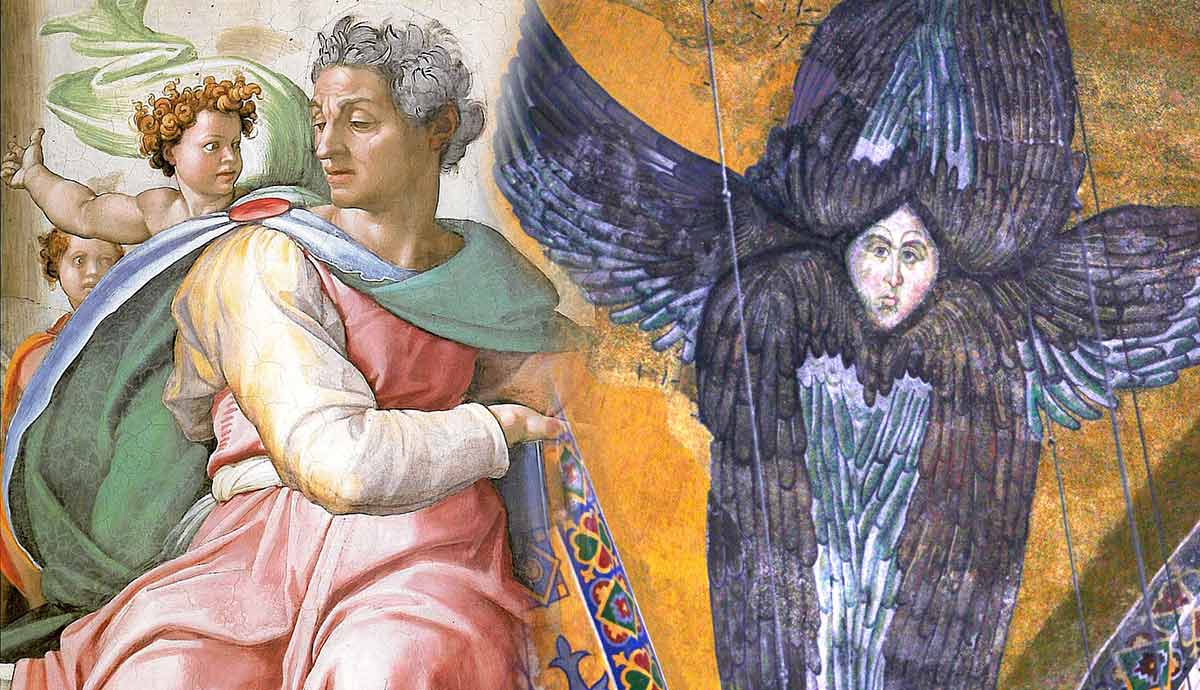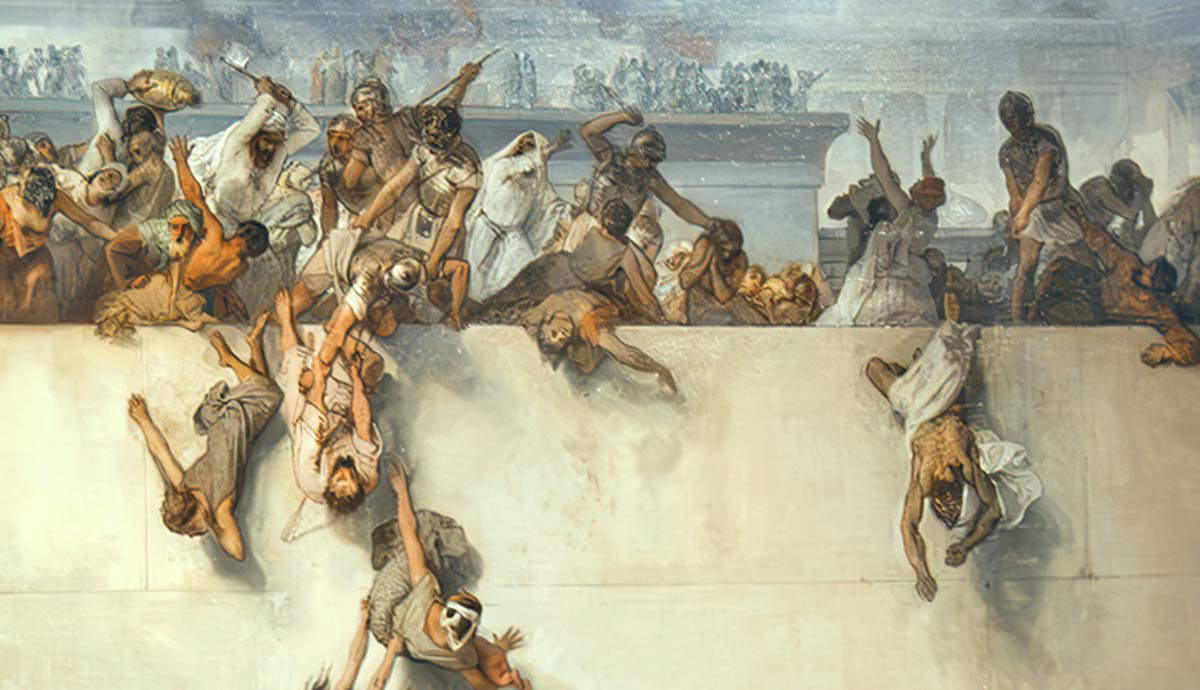
Jeremiah is one of the Bible’s most important prophetic figures. He prophesied the fall of Jerusalem to Babylon, and was deeply unpopular for encouraging Israel to not to resist the Babylonian Exile. Some scholars have posited that he—or perhaps his cohort of scribal priests—may have been involved in the initial collecting or editing of the large section of the Hebrew Bible often called the “Historical Books” or, in scholarly parlance, the “Deuteronomistic History”—which stretches from Deuteronomy to Kings.
Jeremiah Lived in a Politically Convulsive Time

Jeremiah was born after Israel’s northern kingdom, whose capital had been at Samaria, had already been overcome by the Assyrian Empire. Many of its inhabitants had been redistributed throughout the empire, and exiles from other conquered nations had been forced to settle in northern Israel. During Jeremiah’s lifetime, the Assyrians treated Judah, with its capital at Jerusalem, as a vassal state.
Meanwhile, however, Assyria was slowly being overtaken by a new empire coming out of Babylon. Jeremiah would live to see this new empire take not only what had once been the Kingdom of Israel, but also the Kingdom of Judah. He would also live to see the Temple at Jerusalem destroyed. After living through the reigns of five kings of Judah, Jeremiah went into exile in Egypt.
A Prophet of Doom amidst Prophets of Prosperity

Jeremiah is often called the “Weeping Prophet” because his message was about the impending doom of Jerusalem. The book of Lamentations, which laments the Babylonian conquest of Jerusalem, is also traditionally attributed to Jeremiah. In what sound like echoes of the biblical book of Deuteronomy, Jeremiah repeatedly and relentlessly not only prophesied Judah’s demise; he also blamed Judah for it. God, Jeremiah thought, had made a covenant with Israel after they have been delivered from slavery in Egypt many centuries before. But because Israel had failed to follow the terms of the covenant, God was going to allow them to be conquered and taken into exile in a foreign land—just like the book of Deuteronomy warns would happen.
Needless to say, this was a not a popular message. Other prophets predicted the opposite—that God would deliver Israel from its enemies. But Jeremiah insisted otherwise. Jeremiah predicted a final restoration of Israel in the distant future, but his message for his contemporaries was thoroughly negative.
Jeremiah’s Hometown

Jeremiah introduces himself in the book bearing his name as a “priest of Anathoth.” The priests of Anathoth, a town of Benjamin north of Judah, settled there centuries before Solomon built the Temple in Jerusalem. The story of the “priests of Anathoth” could have ended here. But there is more.
The book of Samuel tells of how Israel’s first king, Saul, spent the final years of his reign trying to assassinate David, whom he rightly saw as a threat to his dynasty. Without realizing that David was a fugitive, a high priest named Ahimelech provided David with some food and a weapon.
When Saul finds out that Ahimelech had helped his enemy, he commands one of his officers to slaughter Ahimelech’s family. Only one member of this priestly family escapes—a man named Abiathar. Fleeing to David’s protection, Abiathar thereafter becomes one of David’s closest confidants and, eventually, when David finally gains Israel’s throne, Abiathar becomes Israel’s new high priest.
He Was from a Town of Controversial Priests

However, while David is on his deathbed, Abiathar participated in an attempt to crown Adonijah, David’s oldest surviving son, king in Jerusalem. In a series of events full of intrigue and unanswered questions, Solomon successfully takes the throne, supplanting his older brother. He then proceeds to execute those who had tried to crown Adonijah—with the exception of Abiathar. Instead of killing him, Solomon exiles Abiathar to Anathoth.
Thus, Anathoth’s history was not merely that of normal Levite town; it was the town where the priest who had served David, Israel’s most beloved king, had been exiled. Historians suggest that the rift between the priests of Solomon’s Temple in Jerusalem and priestly families from elsewhere deepened in the coming years. Jeremiah was one of the “outsider” priests—a legitimate priest, but not one who served in the Temple.
He Was Persecuted by His Own People

As is often the case in such circumstances, the extreme political strain under which the Kingdom of Judah was living during Jeremiah’s day affected Judah’s internal politics as well. As an “outsider,” Jeremiah faced opposition and persecution from powerful people in Jerusalem’s political establishment. But opposition came from his own compatriots at Anathoth as well. Eventually, when Babylon conquered Judah, Jeremiah was forced into exile in Egypt from whence he never returned.
Jeremiah was beaten, locked in stocks, and thrown into a water cistern and left to starve—though he was rescued. He was nearly executed as well. The twenty-sixth chapter of Jeremiah tells of another prophet named Uriah whose message of doom mirrored Jeremiah’s, and who was brutally executed by his fellow prophets and priests. Jeremiah was ultimately spared this fate, but his life was in constant danger.
What Else Did Jeremiah Prophesy?

Jeremiah’s message of doom for Jerusalem meant something different for those Israelites who were already living elsewhere under foreign rule. Jeremiah said that they should settle and live at peace—insofar as they could—wherever they were, and that they should strive for success and even to be blessing to their neighbors. This message became extremely important for the development of Judaism as it developed as a religion, in exile, in the absence of a centralized system of worship. According to Jeremiah, instead of giving up their identity in light of the destruction of the Temple and assimilating to their surroundings, the exiled people of Israel and Judah were to continue to identify themselves as God’s chosen people wherever they found themselves.
But Jeremiah’s message was not only for the people of Judah; he also had messages for other nations, including Israel’s enemies. Their immorality, and especially their oppression of others, was unacceptable to God, he said. In Jeremiah’s view, God was not concerned only with Israel and his covenant with them, but also with the morality of all nations. This included Babylon, whose oppression of Judah Jeremiah also condemned.
